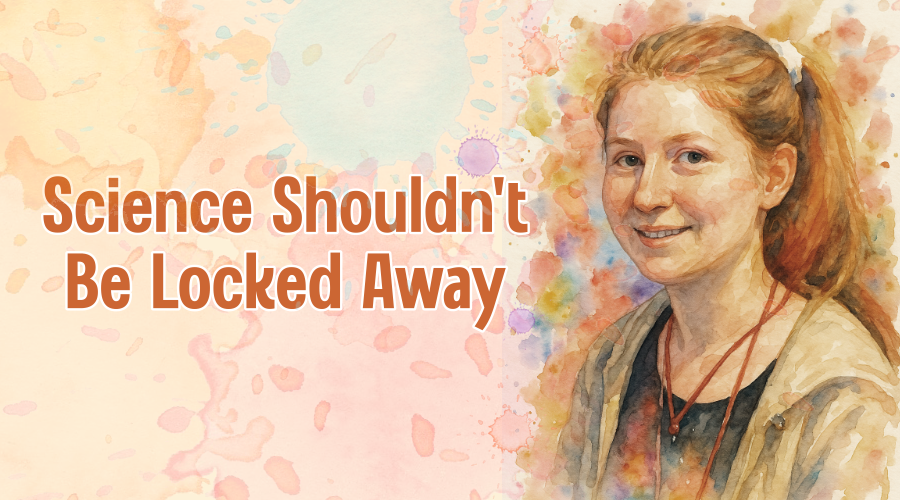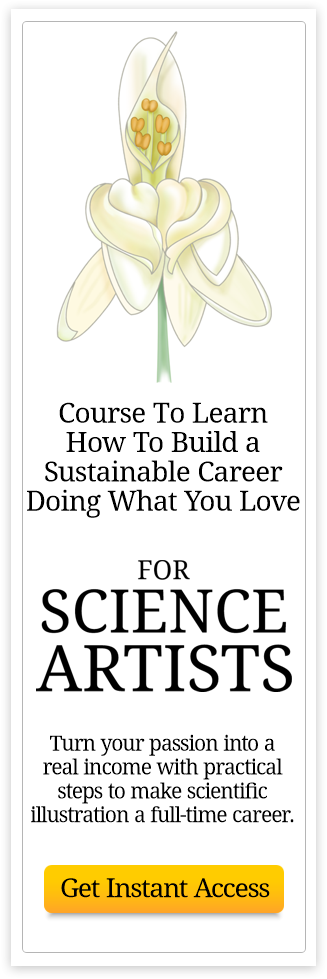
Science for the Elite or for the World? The Truth About Academic Publishing
Introduction
In an era where scientific breakthroughs shape the future of medicine, technology, and environmental policy, access to knowledge has never been more critical.
Yet, much of this knowledge is locked behind expensive paywalls, making it inaccessible to those who need it most—students, independent researchers, and institutions in developing countries.
This is the problem that Alexandra Elbakyan set out to solve when she created Sci-Hub, a platform that provides free access to millions of academic papers.
Celebrated by some as a hero of open knowledge and condemned by others as a copyright violator, Elbakyan has ignited a global debate about who should have access to scientific research.
Should scientific knowledge be freely available to all, or should it remain under the control of academic publishers?
At its core, this debate raises a fundamental question: Should scientific knowledge be freely available to all, or should it remain under the control of academic publishers? While I do not subscribe to socialist ideology, I firmly believe that access to information is a basic right—one that directly impacts education, innovation, and societal progress.
But beyond the legal and ethical concerns surrounding Sci-Hub, there is a deeper question worth considering: What role should scientists play in ensuring that their discoveries benefit society? Every profession, not just science, should operate under the same guiding philosophy: How am I positively contributing to society through my work?
If knowledge is the foundation of progress, then ensuring its accessibility should be a collective responsibility.
The Right to Information vs. Academic Paywalls
Scientific knowledge is meant to advance society. Medical discoveries save lives, climate research informs policy decisions, and technological innovations drive economic growth.
But if knowledge is such a powerful force for progress, why is it often inaccessible to the very people who could use it to create change?
One of the greatest barriers to scientific learning today is the paywall system enforced by major academic publishers. Many scientific journals charge exorbitant fees for individual articles—often ranging from $30 to $50 per paper—or require institutional subscriptions that can cost universities millions of dollars per year. For researchers in well-funded institutions, this cost may be absorbed, but for students, independent scholars, and researchers in lower-income countries, it creates an impossible hurdle.
The irony is that much of this research is publicly funded through government grants and taxpayer money, yet the public often has to pay again just to access it. This raises an ethical question: If society funds scientific research, shouldn’t society have the right to read it?
Publishers argue that paywalls are necessary to maintain quality, fund peer review, and support journal operations. But critics point out that much of the work in academia—conducting research, writing papers, peer reviewing, and editing—is done for free by scientists themselves.
The traditional publishing model has become a system where researchers produce knowledge, review each other’s work, and then must pay to access the final product (their own work!).
This system not only limits access but also slows down scientific progress. A student in a developing country might struggle to find the information needed for their research.
A doctor without access to recent studies might miss out on life-saving treatments. Knowledge locked behind paywalls benefits a few, while open access could benefit millions.
If science exists to serve humanity, then we must ask: Is restricting access to scientific knowledge truly justifiable?
Sci-Hub and the Open Access Movement
The frustration of being unable to access scientific papers is what led Alexandra Elbakyan to create Sci-Hub in 2011.
As a graduate student in Kazakhstan, she often encountered paywalls that prevented her from reading the research she needed. Faced with this barrier, she took matters into her own hands and developed a platform that bypassed paywalls, granting free access to millions of academic papers.
Sci-Hub operates by obtaining research articles through institutional access points—often contributed by users with access to university libraries—and storing them in an open repository.
When a user requests a paper, Sci-Hub either retrieves it from a university’s database or provides a copy from its vast archive. The result is an enormous shadow library of scientific literature, freely available to anyone with an internet connection.
However, this open-access revolution has come at a cost. Sci-Hub has faced multiple legal battles, with major academic publishers like Elsevier, Wiley, and Springer filing lawsuits for copyright infringement.
Courts have ruled against Sci-Hub, leading to domain seizures and restrictions in certain countries. Critics argue that Sci-Hub violates intellectual property laws and undermines the financial model that supports academic publishing.
But supporters of Sci-Hub see it differently. They argue that the traditional publishing system is exploitative, charging exorbitant fees for access to research that scientists often produce and review for free.
Sci-Hub has been called "the Pirate Bay of science," but many researchers consider it a necessary tool, especially in parts of the world where institutional access to journals is limited or nonexistent.
The impact of Sci-Hub has been undeniable. Estimates suggest that it has provided access to tens of millions of scientific papers, leveling the playing field for researchers regardless of location or financial resources.
It has fueled scientific discoveries, enabled breakthroughs, and allowed students and independent scholars to participate in academic discourse without financial barriers.
While the legality of Sci-Hub remains under debate, its existence raises a fundamental question: Is it ethical to restrict access to knowledge that has the potential to benefit humanity?
The rise of Sci-Hub highlights the urgent need for reform in the way scientific information is shared and distributed.
The Role of Scientists in Society
Science is meant to serve humanity, but in a world where access to knowledge is restricted, we must ask:
Who truly benefits from scientific discoveries—the elite or society as a whole?
Throughout history, scientific breakthroughs have shaped the world we live in, from life-saving medical treatments to technological innovations.
But if these discoveries remain locked behind paywalls, their impact is limited to those who can afford access. This raises an important ethical dilemma: Should scientists take a stand in ensuring their work reaches the people who need it most?Many scientists already advocate for open access publishing, choosing to publish in journals that make their work freely available.
Others share their findings through institutional repositories, preprint servers, or platforms like ResearchGate, although it is an elitist and a platform exclusive for scientists, it is a step forward.
However, a large portion of scientific literature remains in the hands of publishers, limiting who can learn from and build upon existing research.This isn’t just a debate for academia—it’s a question that extends to all professions.
Every industry should ask itself: How am I positively contributing to society through my work?
Scientists, engineers, artists, and educators alike play a role in shaping the future. If knowledge is the foundation of progress, then ensuring it is accessible, ethical, and used for the greater good should be a guiding principle in any profession.
At the heart of this discussion is a simple truth: Science is not just for the privileged few—it belongs to everyone.
Conclusion: Why Don’t Scientists Just Publish Their Own Papers?
After writing about Alexandra Elbakyan and the Sci-Hub movement, I found myself reflecting on a question that often lingers in the minds of those outside the academic publishing world:
Why don’t scientists just publish their own papers on their personal websites?
If they are the ones conducting research, writing papers, peer reviewing, and even editing journals—often without compensation—why do they still depend on academic publishers?
The answer is layered and tied into the structure of the academic ecosystem. Let’s explore why this continues to be the norm.
🏛️ Academic Credibility and Prestige
While it may seem intuitive to self-publish, academic recognition still heavily depends on publication in peer-reviewed journals. These publications are not just about sharing knowledge—they are metrics used by hiring committees, funding agencies, and tenure boards.
Even if a scientist published groundbreaking research on their personal blog, it likely wouldn’t count toward their academic standing unless it appeared in an established journal.
“Publish or perish” is still a defining pressure in academia—and where you publish matters.
🔍 Peer Review Still Holds Value
Peer review, for all its flaws, remains a pillar of scientific publishing. It adds a level of credibility and validation that is difficult to replicate in self-publishing.
Even though peer reviewers are unpaid, their role adds weight to the quality and trustworthiness of published work.
Most institutions and scholarly communities still equate peer-reviewed publication with legitimacy.
🔗 Discoverability and Indexing
Academic publishers and journals are connected to powerful indexing and citation systems: PubMed, Scopus, Web of Science, and others. These databases make research easily searchable, citable, and trackable.
A paper published on a personal website may not be discoverable in these systems, which affects its reach and impact.
🏫 Inertia and Tradition
Academic publishing is a deeply entrenched tradition. Scientists are trained within a system that values certain journals, prestige metrics, and formal channels. Changing this system means changing the culture—something that takes time and collective will.
Even scientists who are critical of the current model often feel trapped by it. They need publications to secure grants, collaborate with peers, or maintain institutional support.
✨ But Change Is Happening
Despite these challenges, there is a growing movement toward open-access alternatives:
- Preprint servers like arXiv, bioRxiv, and medRxiv allow scientists to share work openly before formal publication.
- Platforms like ResearchGate and OSF (Open Science Framework) allow sharing of full papers, data, and methods.
- New open-access journals and community-led peer review models are emerging to challenge the status quo.
These changes reflect a shared desire: to make science more accessible, collaborative, and transparent.
📜A Gentle Invitation to Reflect
As we explore the ethics of access through stories like Sci-Hub, it’s worth asking:
“If the goal of research is to benefit society, what systems are helping or hindering that goal?”
And more personally:
“How does my own work contribute to the broader good?”
The answers may guide us toward a more open and equitable future—in science and in every field.
Thank you for being here, for reading, and for caring about knowledge as a shared treasure.
Feel free to share this piece or bookmark it for future reflection. 🌟
LIKE THIS ARTICLE?
YOU'LL 🧡 THE NEWSLETTER!
Get timely tips to improve your services, land more projects, illustration tips, and more...

